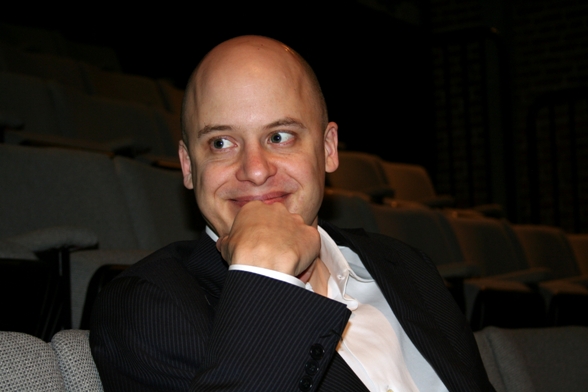Lev Grossman remembers his time on the NBCC board, from 2004 to 2008
I was elected to the board of directors of the National Book Critics Circle in 2004. This in itself was a major achievement for me, because I had never won an election in my life, except for secretary of the drama club in high school, and that was a squeaker. It was also important to me because I work as the book critic at Time magazine. There is only one book critic at Time, and we don’t (generally) employ freelancers, which means that I had had almost no contact with other professional critics before I joined the NBCC board. It was the first time I’d been in a room with that many people who were smarter and better-read than me since graduate school. This kind of thing is good for the soul. Or whatever passes for a soul in a book critic.
If you have never in your life felt pity for a book critic, think of this: when I was a member the board of the NBCC met formally four or five times a year, but because we had more than four or five meetings-worth of things to do in a year, the meetings lasted seven or eight hours each. They ran from 10:00 in the morning to 6:00 in the evening, which is an incredibly long time to spend in a conference room at Library Journal with 23 other people. It was, however, worth it.
Probably the most important thing the NBCC does is act as a professional organization that represents huge numbers of far-flung freelance reviewers. In that capacity I was almost totally useless, not being a freelancer and having as I do minimal expertise in dealing with bureaucracy and legal issues. Great things were accomplished during my tenure at the NBCC—among them winning non-profit status, and starting an NBCC blog. I did not contribute to these things in any way. What I was mostly involved with was the giving of the awards.
This is a process that starts in April and continues without a break for the rest of the year. It happens partly over e-mail and partly in the aforementioned marathon meetings. (“It’s 4:30 and we haven’t even gotten to NON-FICTION yet,” was something you could pretty much count on hearing somebody say.) People who know me know that I will do almost anything to avoid heated arguments. The one exception to this rule is arguments about books. I actively look for those. During my time on the NBCC I never had to look very far.
Of all the major book awards, the NBCC has far and away the most rigorous and authoritative process. Unlike the committees that judge the National Book Award, the Booker Prize, and the Pulitzer Prize, the NBCC board has minimal turnover from year to year. The Pulitzer jury for fiction consists of three people; the Booker and National Book Award juries, five each. The NBCC board has 24 people on it. And none of those 24 people, that I know of, are former politicians or professional comedians. All of them are professional critics: all they do, all day, is read books and talk to people who read books and argue about books. I’M JUST SAYING.
We argued about what books we should argue about, and about whether those books were good, and about what “good” even means. I personally remember getting very huffy about voting procedure and invoking Arrow’s impossibility theorem, loudly, which is a concept that I only dimly understand. I didn’t always agree with our final choices—I didn’t even agree with our choice for the fiction award in the year that I chaired the fiction panel—but I never doubted the integrity of the process. We argued till there was nothing else to argue about. Or at least until I absolutely had to get out of that conference room.
If I have one regret about my time on the NBCC, it’s that I did not succeed in changing its name. I have met actual National Book Critics Circle Award winners who cannot say “National Book Critics Circle Award” without stumbling over it. (This is even leaving aside the Nona Balakian Citation for Excellence in Reviewing.) My great failed initiative, which I now throw open to the court of world opinion, was to change the name of the NBCC Award to something catchier. Something more brandable. The Circle Prize. The Critics’ Medal. Something, anything, which you can drop in conversation without having to take a breath in the middle of it, or consult your notes.
It’s not too late! What do people think? E-mail me. We’ll argue about it, for old time’s sake.


